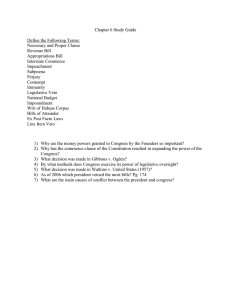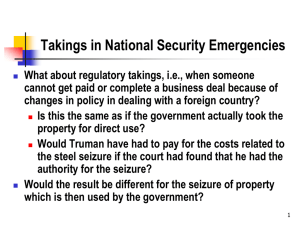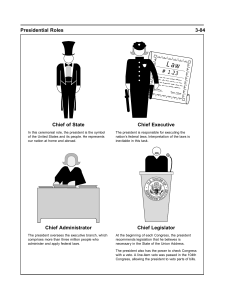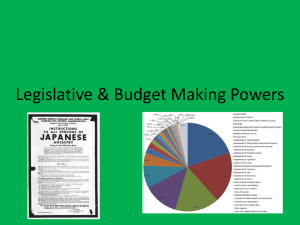LIMITATIONS ON CONGRESSIONAL WAR POWERS
advertisement
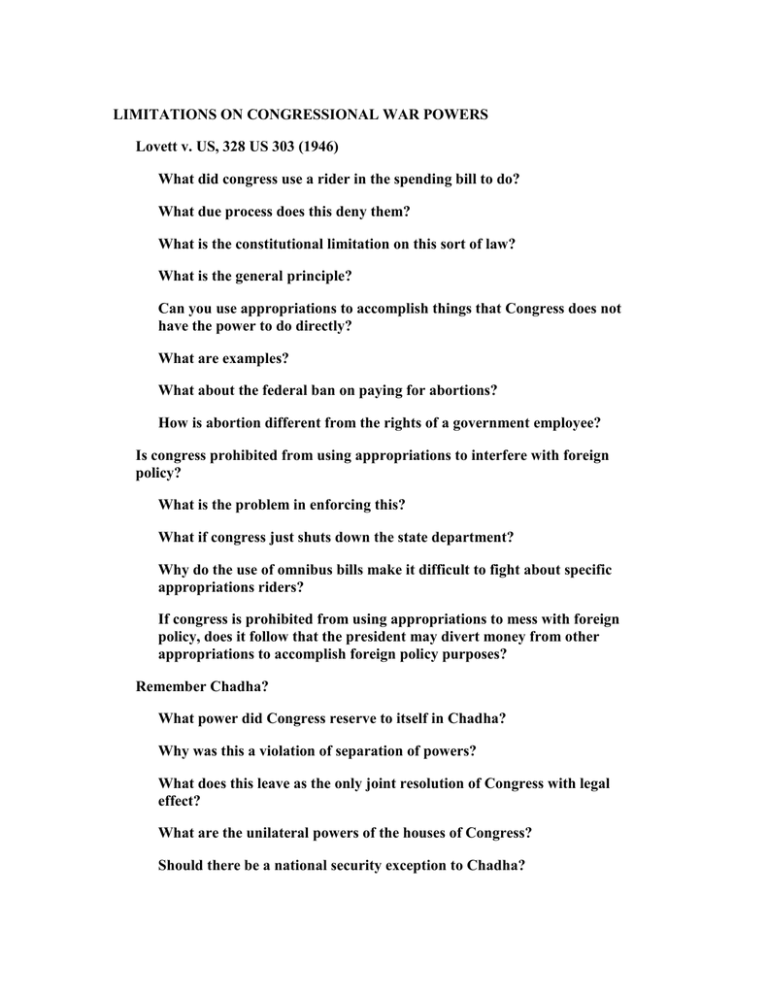
LIMITATIONS ON CONGRESSIONAL WAR POWERS Lovett v. US, 328 US 303 (1946) What did congress use a rider in the spending bill to do? What due process does this deny them? What is the constitutional limitation on this sort of law? What is the general principle? Can you use appropriations to accomplish things that Congress does not have the power to do directly? What are examples? What about the federal ban on paying for abortions? How is abortion different from the rights of a government employee? Is congress prohibited from using appropriations to interfere with foreign policy? What is the problem in enforcing this? What if congress just shuts down the state department? Why do the use of omnibus bills make it difficult to fight about specific appropriations riders? If congress is prohibited from using appropriations to mess with foreign policy, does it follow that the president may divert money from other appropriations to accomplish foreign policy purposes? Remember Chadha? What power did Congress reserve to itself in Chadha? Why was this a violation of separation of powers? What does this leave as the only joint resolution of Congress with legal effect? What are the unilateral powers of the houses of Congress? Should there be a national security exception to Chadha? Why should the court be more flexible on national security? What if the president wants to use our first strike capabilities to slow down competition from China? Line Item veto - Note 4 - 122 What is a line item veto? Why would congress give this to the president? What is the problem with using impoundment as a line item veto? What is the constitutional problem with a line item veto? Why did the founder's not think about a line item veto - how was the budget process different? Would the argument be different for national security bills? Does Congress have a way to give the president flexibility? What about the budgets for the CIA and NSA?
